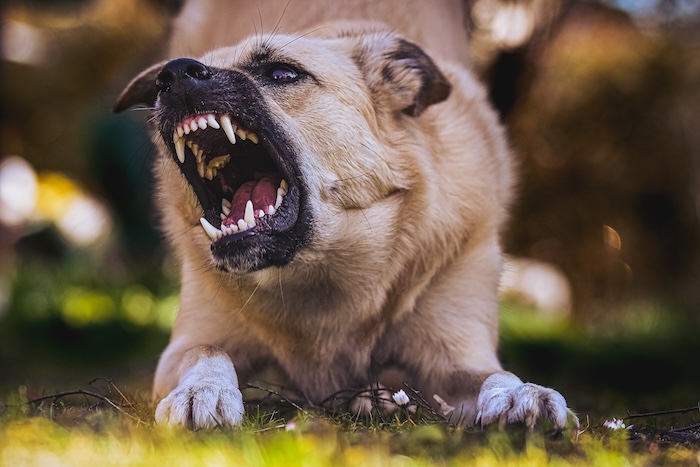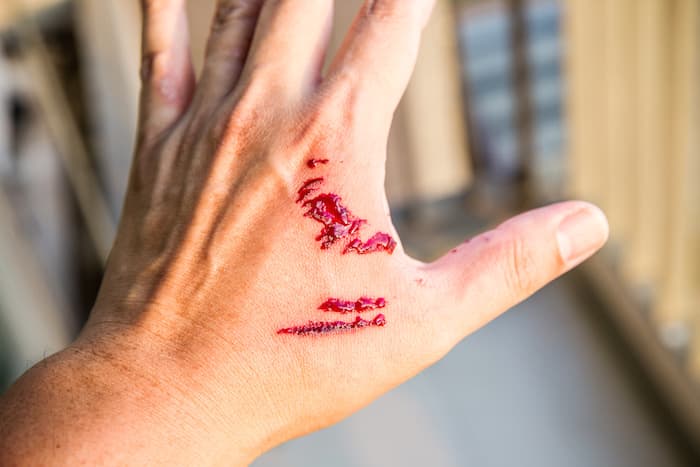They say a dog is a man’s best friend, but what happens when that trusted companion turns into an unexpected threat? Dog bites can be a harrowing and painful experience, leaving physical and emotional scars that can linger long after the wounds have healed. Whether you’re a dog owner, a passerby, or a pet lover, the aftermath of a dog bite can be a daunting journey to navigate.
But fear not, for in this blog post, we’ll be your guide, your roadmap to post-dog bite healing. We’ll explore the steps to recovery, share expert advice, and shed light on how to cope with the emotional aftermath of this unfortunate encounter. Without further ado, let’s get started.

Assess the Severity
When bitten by a dog, the first crucial step is to evaluate the bite’s severity. Not all dog bites are equal; some are superficial, while others may cause significant tissue damage or even pose a risk of infection. To assess severity, consider factors such as the depth of the wound, the presence of bleeding, and the location of the bite.
Superficial wounds may require basic first aid and vigilant monitoring for signs of infection, while deep, extensive, or puncture wounds often demand immediate medical attention to prevent complications. Accurate assessment guides you in determining the appropriate next steps in caring for the bite.
Clean the Wound
After assessing the severity of a dog bite, the next vital step is to cleanse the wound. Use gentle, lukewarm water and mild soap to wash the area thoroughly, removing any debris or contaminants that may have entered the wound. It’s essential to be delicate during this process, as aggressive scrubbing can exacerbate the injury.
After washing, pat the area dry with a clean, sterile cloth. Cleaning the wound serves to reduce the risk of infection, a significant concern with animal bites, as it eliminates potentially harmful bacteria from the site. Proper wound hygiene is a crucial element of post-bite care to promote healing and prevent complications.
Apply First Aid
Once the dog bite wound is thoroughly cleaned, the next step is to administer first aid to promote healing and prevent infection. Begin by applying an antiseptic solution, such as hydrogen peroxide or iodine, to the wound. This helps to further disinfect the area and reduce the risk of bacterial contamination.
After applying the antiseptic, use a sterile dressing or clean cloth to cover the wound. Applying an antibiotic ointment before covering the wound can provide an additional layer of protection. Securing the dressing with a bandage helps keep the wound clean and shields it from further exposure, ensuring a conducive environment for healing.

Seek Medical Attention
Regardless of the perceived severity of a dog bite, consulting a medical professional is a crucial step in the aftermath of such an incident. Dog bites can introduce harmful bacteria into the body, leading to infections that may have serious consequences if left untreated. Even seemingly minor bites can result in complications.
A healthcare provider will assess the wound, clean it thoroughly, and decide whether stitches or additional treatments are necessary. They may also recommend antibiotics to prevent or treat infection. In cases of more severe bites, surgery or wound care by a specialist may be required. Prompt medical attention ensures the best possible outcome and minimizes potential complications.
Report the Incident
Reporting a dog bite incident is not only essential for your safety but also for the well-being of the community. If the dog is unfamiliar, a stray or its owner is uncooperative, reporting the incident to local authorities, animal control, or the police is crucial. This information helps track the dog’s vaccination history and identify potential health risks, especially if the dog displays unusual behavior or appears sick.
It also aids in the prevention of future attacks by ensuring the dog is properly monitored or, if necessary, quarantined. Reporting the incident supports public safety and may hold the dog owner responsible for their pet’s actions.
Get Legal Help
Seeking legal assistance may be necessary, especially in cases of severe injury, or emotional distress, or when dealing with uncooperative owners. You can contact a personal injury lawyer experienced in dog bite cases who can guide you through the legal process, helping you understand your rights and potential courses of action. They can aid in gathering evidence, assessing liability, and pursuing a claim for compensation to cover medical expenses, lost income, and pain and suffering.
Legal assistance is particularly valuable when dealing with insurance companies or uncooperative dog owners, ensuring that you receive fair and just compensation for the physical and emotional repercussions of the incident.
File a Claim
If you’ve experienced a dog bite, filing a claim may be a necessary step to obtain compensation for your injuries and related expenses. Start by documenting all aspects of the incident, including medical records, photographs of the wound, and any evidence of the dog’s aggressive behavior or owner’s negligence. Contact the dog owner’s insurance company if applicable, as homeowner’s or renter’s insurance typically covers dog bite claims.
Alternatively, consult an attorney who specializes in personal injury cases to navigate the legal complexities. Filing a claim can help you recover medical costs, lost wages, and damages for pain and suffering, providing financial relief as you recover from the physical and emotional impact of the dog bite.
Focus on Your Recovery
After being bitten by a dog, it’s crucial to prioritize your physical and emotional well-being. Once you’ve taken the necessary medical and legal steps, shift your focus to your recovery. Follow your healthcare provider’s instructions meticulously, attend any follow-up appointments, and adhere to prescribed medications or treatments. Allow your body time to heal and pay attention to signs of infection or complications.
Additionally, consider seeking emotional support if you’re experiencing anxiety, fear, or post-traumatic stress related to the incident. Engaging in stress-reduction techniques, such as counseling or therapy, can be immensely beneficial. Concentrating on recovery ensures a smoother transition back to your daily life and activities.
Taking the appropriate steps is paramount for your well-being and safety after a dog bite. Assess the severity, clean the wound, and seek immediate medical attention to prevent complications. Reporting the incident is essential for public safety and holding responsible parties accountable. If necessary, consult a legal professional to pursue compensation. Filing a claim can help cover expenses and losses. Ultimately, your recovery should be the top priority; ensure you follow medical advice and seek emotional support if needed. By following these steps, you can navigate the aftermath of a dog bite with care and diligence.
